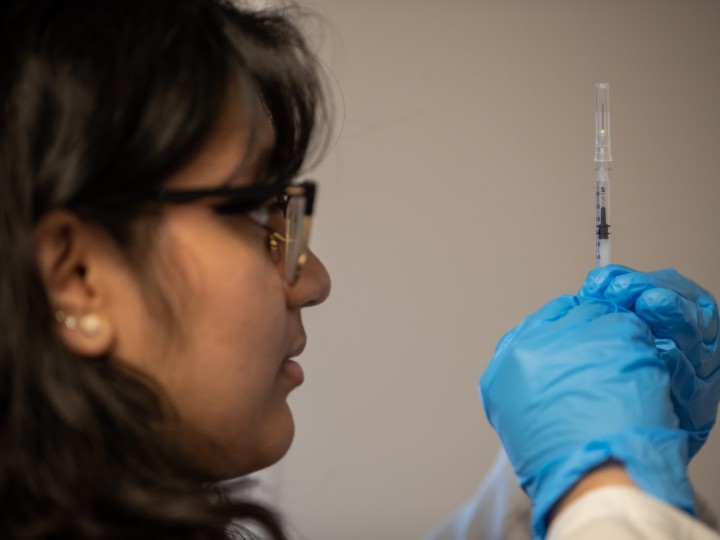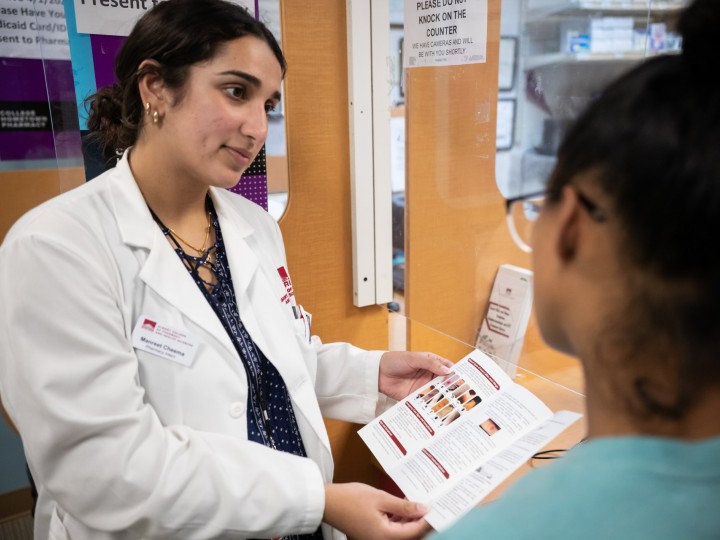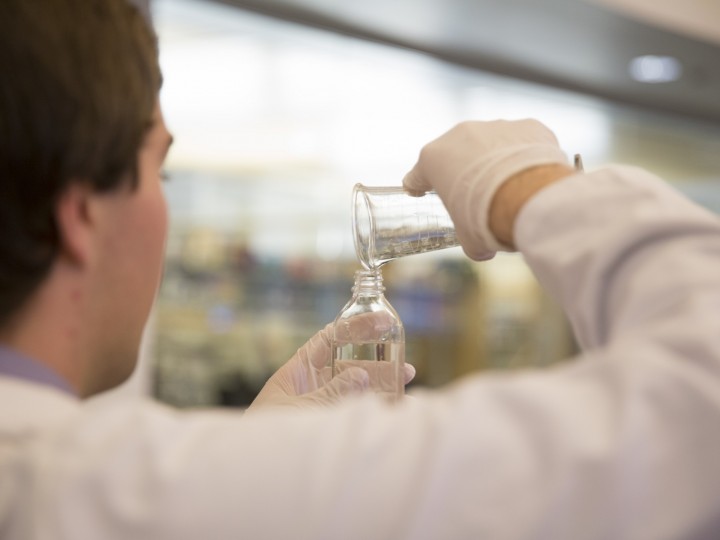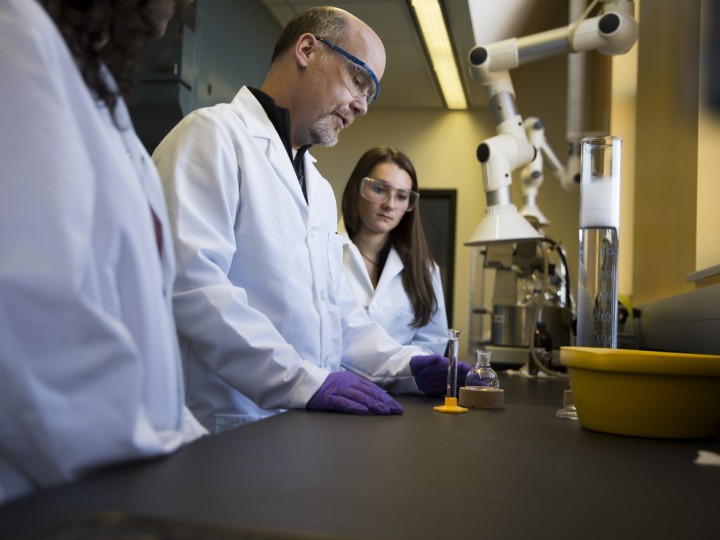ACPHS offers opportunities unlike any you’ll find in other pharmacy degree programs. It’s why our graduates excel as health care leaders wherever they choose to go.
Gain firsthand experience in one of our student-operated pharmacies under the supervision of a practicing Pharmacist. Participate in cutting-edge research with faculty in a wide variety of areas – for example, study antibiotic dosing in patients with kidney disease, the impact of a patient education campaign, the rate of side effects from a new medication, the cost-benefit of medications, epigenetics. Explore 600+ rotation sites that meet experiential education requirements.
Our pharmacy degree allows you to obtain your pharmacy intern permit and help immunize patients after the P1 year. Customize your degree with professional electives. You can also specialize in a specific area with a pharmacy residency.
High school graduates who attend the prepharmacy program at ACPHS are guaranteed a seat in the 4-year professional Doctor of Pharmacy program. Transfer students with some college credits can apply for entry into the first or second pre-pharmacy year.
Students who completed pre-requisites elsewhere may apply directly into the first professional year (P1) of the PharmD program via PharmCas.

Pharmacy is a diverse and rewarding career and pharmacists play key leadership roles in all aspects of the healthcare system. With a Doctor of Pharmacy degree from ACPHS, you'll be prepared to provide top quality patient care, scientific research and policy innovation.
Earning your Doctor of Pharmacy degree is more than preparing for a career. It’s gaining the skills to take on challenging and fulfilling work all done to improve the health, the care, and the quality of life for your patients. As a PharmD, you'll be joining an educational community focused on the future of science.

ACPHS is home to two student-operated pharmacies where students work with a full-time, licensed pharmacist to gain valuable experience. In addition to dispensing medications and providing related services, the pharmacy offers an expanded range of clinical services associated with patient wellness, including point-of-care testing services and associated disease state counseling.
Clinical rotations are a required component of the pharmacy program. You'll find 600+ rotation sites that meet our experiential education requirements around the world. Stay local, head out to another part of the country, or go abroad!
PharmD graduates interested in obtaining additional training, specializing in a specific area of pharmacy, pursuing careers in academia, or who simply want to differentiate themselves in a competitive marketplace, should consider a pharmacy residency.
In recent years, ACPHS has matched over 30 first-year residents on average at prestigious institutions like the University of California San Francisco Medical Center, New York-Presbyterian Hospital and the VA Boston Healthcare System.

Our graduates take leadership roles at community pharmacies, hospitals and nursing homes. You could also work for managed care organizations, the pharmaceutical industry, public health positions and the federal government.
A PharmD will prepare you for a variety of roles including:
• Community pharmacist
• Clinical pharmacist
• Hospital pharmacist
• Pharmaceutical industry pharmacists
• Veterinary pharmacists
• Geriatric pharmacists
• Infusion and compounding pharmacists
According to the U.S. Bureau of Labor Statistics, a doctorate in pharmacy salary was $128,570 in 2021.

Our curriculum is designed to help you develop, integrate and apply knowledge from pharmaceutical, social/behavioral/administrative, and clinical sciences to evaluate the scientific literature, explain drug action, solve therapeutic problems and advance population health and patient-centered care.
"There is something for everyone at ACPHS, and there are so many opportunities for you to build your leadership skills which are extremely beneficial throughout your career."
- Jennifer Berish '20
pharmd@acphs.edu
518-694-7110
106 New Scotland Avenue, Albany, NY 12208
admissions@acphs.edu
518-694-7221


